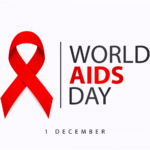Stopping HIV in its Tracks: The Role of PrEP and PEP

HIV remains one of the most pressing public health challenges in Africa. According to UNAIDS, over 25 million people in Sub-Saharan Africa are living with HIV, and thousands of new infections occur every day. While education, testing, and condom use remain central to prevention, modern medicine offers two powerful tools to stop the spread: Pre-Exposure Prophylaxis (PrEP) and Post-Exposure Prophylaxis (PEP).
Both PrEP and PEP are antiretroviral (ARV) medications that, when used correctly, drastically reduce the risk of HIV infection. However, their success depends heavily on correct use and adherence.
What is PrEP?
Pre-Exposure Prophylaxis (PrEP) is a daily oral medication taken by HIV-negative individuals to prevent infection. It works by building up protective levels of ARVs in the bloodstream, making it difficult for the virus to establish itself in the body.
-
Who should use PrEP?
-
People with HIV-positive partners.
-
Individuals with multiple sexual partners.
-
People who inject drugs and share needles.
-
Sex workers and members of key populations at higher risk.
-
When taken consistently, PrEP can reduce the risk of acquiring HIV through sex by about 99% and through injection drug use by at least 74%.
What is PEP?
Post-Exposure Prophylaxis (PEP) is an emergency HIV prevention method. It involves taking ARV medications within 72 hours after possible exposure to HIV. PEP is not for regular use—it is meant for urgent situations such as:
-
Unprotected sex with an HIV-positive or unknown-status partner.
-
Condom break or slip during sex.
-
Sexual assault.
-
Accidental exposure (e.g., healthcare workers with needle-stick injuries).
PEP must be taken once daily for 28 days to be effective. The sooner it is started, the higher the protection.
Adherence Challenges in Africa
Despite the proven effectiveness of PrEP and PEP, adherence remains a major barrier across Africa. Common challenges include:
-
Stigma and Discrimination
Many fear being judged if seen taking HIV medication, even if they are HIV-negative and using PrEP or PEP. This discourages consistent use. -
Limited Awareness
Many Africans have heard of HIV treatment but not of PrEP or PEP. Lack of public education leads to underutilization. -
Access Barriers
Rural areas often lack clinics that stock PrEP or PEP. Long travel distances, high costs, and medicine shortages make adherence difficult. -
Side Effects Concerns
Some people stop taking PrEP or PEP due to nausea, fatigue, or headaches—though most side effects are mild and temporary. -
Medication Fatigue
Taking daily pills can feel burdensome, especially for young people who do not perceive themselves at high risk.
How Effective are PrEP and PEP?
-
PrEP: Offers up to 99% protection against HIV when taken daily as prescribed. Missed doses reduce effectiveness.
-
PEP: Provides high protection if started within 72 hours and completed for the full 28 days. Delays or incomplete treatment lower success rates.
Neither PrEP nor PEP protects against other STIs or unintended pregnancy. For comprehensive protection, they should be combined with condoms and regular sexual health check-ups.
Improving Adherence and Access in Africa
-
Community Education
Mass awareness campaigns, social media, and school programs can help normalize PrEP and PEP use, just like condoms. -
Pharmacy-Led Initiatives
Pharmacies are often the first point of contact for healthcare in Africa. Digital pharmacies like HubPharm Africa can provide medication delivery, reminders, and counseling. -
Mobile Health (mHealth) Solutions
SMS reminders, mobile apps, and telemedicine platforms can help patients remember daily doses and access professional support. -
Reducing Stigma
Training healthcare workers to provide non-judgmental, confidential services is crucial. Involving peer educators also improves acceptance. -
Government and NGO Support
Ministries of Health, NGOs, and international donors can improve supply chains and subsidize costs to make PrEP and PEP more affordable.
Key Takeaways
-
PrEP is for prevention before exposure, while PEP is for emergencies after exposure.
-
Both medications are highly effective when used correctly but depend on strict adherence.
-
Stigma, limited awareness, and access challenges remain key barriers in Africa.
-
Expanding education, leveraging digital health solutions, and reducing stigma will help save millions of lives.
Conclusion
PrEP and PEP represent a new era in the fight against HIV in Africa. They are more than just medications—they are tools of empowerment, giving people the ability to take control of their health and protect their future. With better awareness, wider access, and stronger adherence support, Africa can move closer to ending the HIV epidemic.
A healthier continent begins with informed choices, and PrEP and PEP are two of the most powerful choices we have today.
Written by Fawzi Rufai, Medically Reviewed by Sesan Kareem



